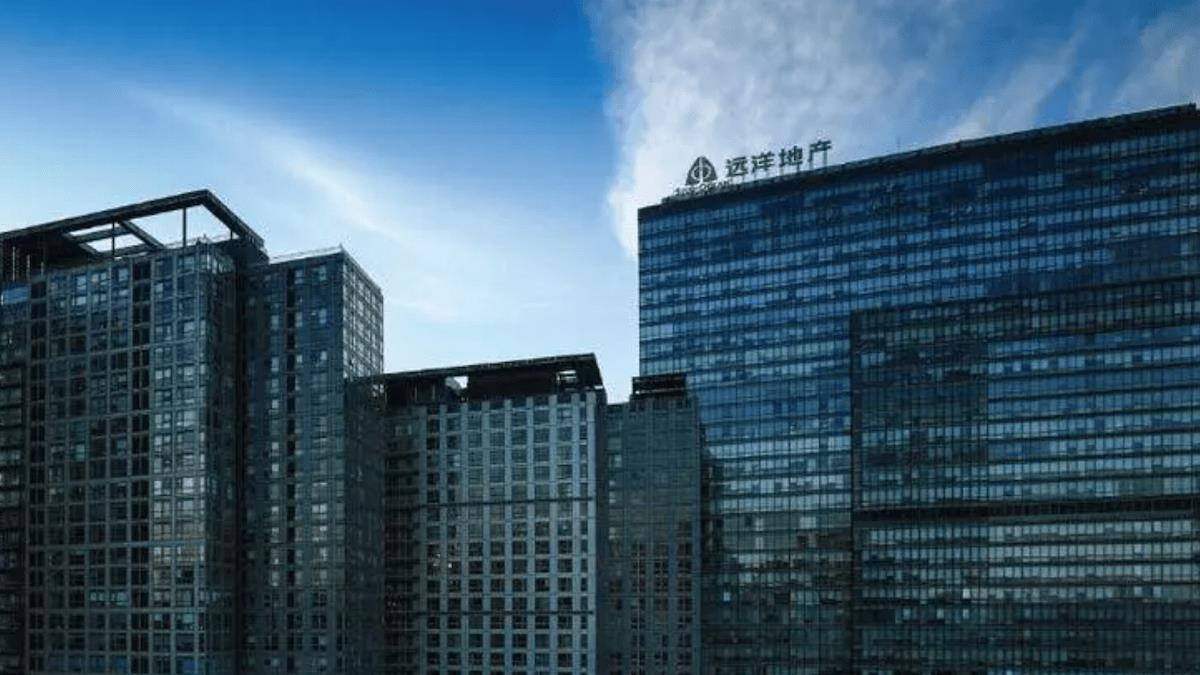Sino-Ocean Group, a state-owned property developer, said Monday that it had failed to pay interest of US$20.9 million for its US$700 million notes by Sunday, which was the last day of the 14-day grace period for the interest payment. It said trading of the notes had been suspended on Monday due to the default.
The company is seeking to delay the interest payments further, to September 30, by passing an extraordinary resolution in a special meeting on Thursday.
Before this, the company had failed to repay the principal of a five-year corporate bond worth 2 billion yuan (US$275 million) on August 2. It said it will default if it fails to make full repayment of the principal and interests of the bond by September 1.
As of Tuesday, shares of Sino-Ocean have decreased this year by 69% to 34 HK cents (4.4 US cents).
Chinese commentators said Sino-Ocean's debt problems will worsen the home market sentiment as many homebuyers will delay their purchase plans. They said such a trend will further drag the property prices in China, causing bigger losses and financial difficulties to property developers.
Latest stories

unholy symbiosis of us legislators and cable news channels

emerging asia's climate pledges look like empty promises

philippines cuts china hotline as sea tensions spike
When Evergrande's debt crisis was reported in the second half of 2021, Sino-Ocean Group was praised by Chinese media as a financially healthy firm as it has two“rich daddies” –Anbang Life Insurance and Dajia Life Insurance.
Anbang Life Insurance and Dajia Life Insurance, controlled by the state-owned Assets Supervision and Administration Commission and the Ministry of Finance, respectively, each owns a 29.58% stake in Sino-Ocean Group.
Last year, Sino-Ocean Group's contract sales fell 26.4% to 100.29 billion yuan from a year ago. The company saw its revenue decrease by 28% to 46.13 billion yuan last year. It reported a net loss of 15.93 billion yuan in 2022, compared with a net profit of 2.7 billion yuan in 2021.
The company said Monday it expects to record a net loss between 17 billion and 20 billion yuan in the first half of this year. In the first seven months of this year, the company's contracted sales declined 26.6% to 38.15 billion yuan from a year earlier.
The company told its creditors that it had started working with its major shareholders on a debt plan, Bloomberg reported on July 5.
“China's overall property market still shows few signs of a sustained turnaround, but we believe that developers with more secure state linkages, such as Yuexiu Property, will eventually emerge as survivors in the sector,” Sandra Chow, co-head of Asia Pacific Research at CreditSights, writes in a research report published on August 8.
“That said, failures of other developers with more tenuous government links, such as Sino-Ocean and Central China Real Estate, have made investors increasingly nervous about all but the safest government-linked names and Yuexiu's bonds could be vulnerable to swings in market sentiment, or any perceived weakening in its implied government support,” she says.
A Henan-based property columnist says many property developers faced a 30% year-on-year decline on average in their contracted sales in July while 36 of the top 100 developers saw a 50% drop.
“Country Garden and Sino-Ocean will not be the last to default as a big storm has just begun,” he says.“Of the top 30 private property developers, 20 have already reported debt problems. After these, now the crisis has extended to mixed-ownership firms.”
Mixed-ownership firms refer to state-owned-enterprises that have received private investments or been listed.
As of the end of last year, Sino-Ocean had assets of 246.1 billion yuan and liabilities of 198.2 billion yuan. Net assets fell 37% to 47.9 billion yuan at the end of 2022 from 76.5 billion yuan a year earlier.
On December 31 last year, the company had 9.4 billion yuan of cash but 38 billion yuan of borrowings due within one year.
A Fujian-based writer says Sino-Ocean has so far failed to significantly improve its financial situation as it bought some expensive sites last year and in 2021 acquired a controlling stake in the debt-laden Hongxing Real Estate.
He says Sino-Ocean halved the selling price of its apartments in Fuzhou to about 15,000 yuan per square meter in June, showing that it is desperate for cash.
A Guangdong-based columnist surnamed Wang says property developers' debt problems will have a long-term negative impact on the real estate markets as many homebuyers become reluctant to enter the markets. He adds that a property crisis may also create systemic risks to the banking sector and hurt consumer confidence.
Country Garden said on August 8 that it has not paid two dollar bond coupons due August 6 worth a total of US$22.5 million. It can pay within a 30-day grace period to avoid a default but it still has to repay US$2.9 billion of bonds by the end of this year.
read: country garden's cash crunch worries homebuyers
Follow Jeff Pao on Twitter at
@jeffpao3
Like this:Like Loading... Related






















Comments
No comment